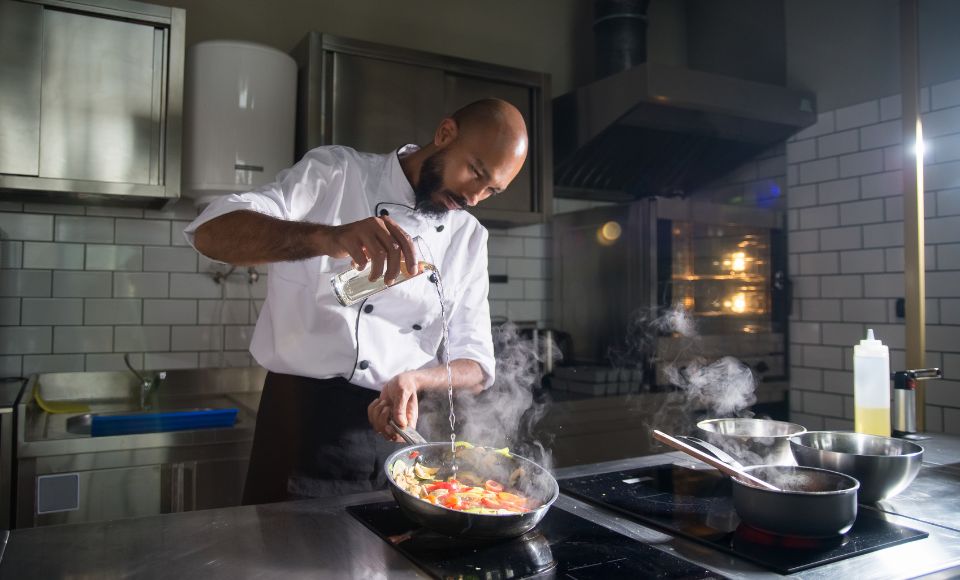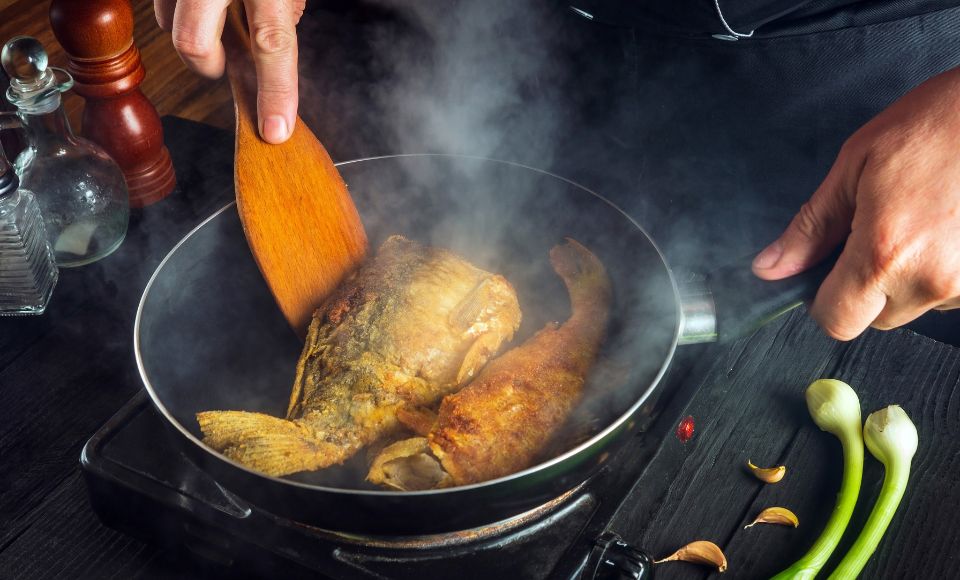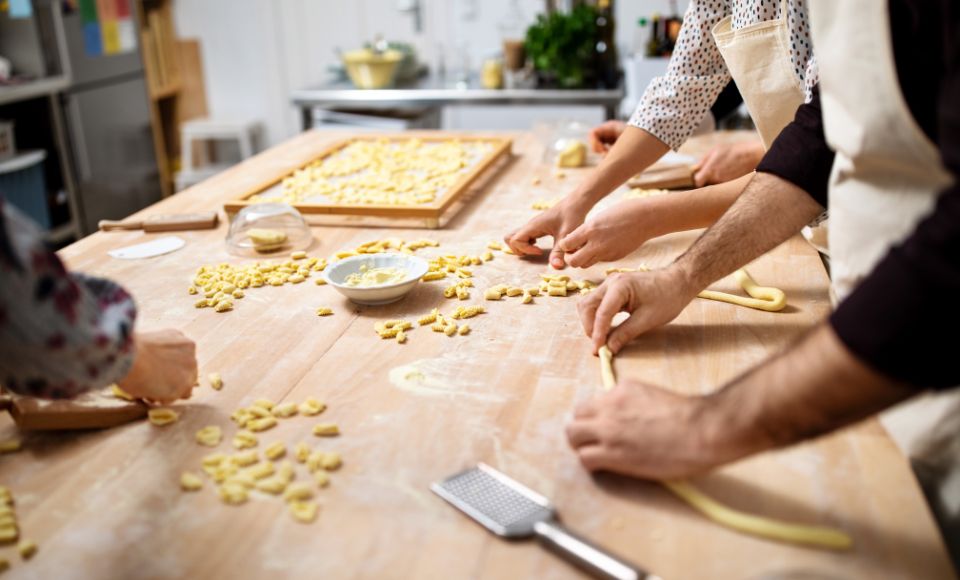(Updated 16/08/2025)
Italy and delicious food are inextricably linked. It’s no coincidence that Italian cuisine is on UNESCO’s list of intangible cultural heritage. For those who are eager to learn more about this rich culinary tradition, Dolcevia has compiled an extensive guide with more than 100 cooking schools and cooking course locations throughout Italy. From nord to sud, and from east to west, you’ll find opportunities to immerse yourself in the secrets of Italian cuisine: la cucina italiana.
TL;DR: Dolcevia’s extensive guide offers over 100 cooking schools across Italy, providing unique culinary lessons ranging from day workshops on fresh pasta to professional training, encapsulating the essence of Italian cuisine and culture.
The Added Value of Cooking Lessons in Italy
Taking a cooking course in Italy offers more than just culinary knowledge. You learn about the origins of dishes, the types of ingredients that are typically found in a particular region, how to check the freshness of the products. But you also learn more about the eating culture, the Mediterranean diet, the cucina povera and the family life of the Italian.
On the map, cooking schools for professionals or amateur cooks are indicated with this icon![]() , the ones more geared towards tourists have this icon
, the ones more geared towards tourists have this icon![]() .
.
The offer is as diverse as Italian cuisine itself. You can choose from:
Day workshops: If you’re looking for an authentic culinary experience during your vacation. In a few hours, you’ll learn, for example, how to make fresh pasta or bake a real Neapolitan pizza.
Week-long courses: If you’re really serious about learning Italian cuisine and have a bit more time available, then a longer course might be what you’re looking for. These courses often combine theory and practice and cover different aspects of regional cuisine.
Professional training: For those considering making cooking their profession, there are renowned institutes that award recognized diplomas. These programs can last from several months to several years.
Cooking classes at an Agriturismo
A special experience is taking cooking classes at an agriturismo – a traditional farm that has opened its doors to tourists. Cooking classes for children are also frequently organized. Here, you not only learn to cook or make a basic pasta from scratch, but also get to know the origin of the ingredients. You pick vegetables from the garden, learn about local wines, and experience what rural life in Italy is really like. This form of culinary education is especially popular in Tuscany, Umbria, and Sicily. The video below was made at Ca’Palazzo in the Marche region, where at least one international cooking session is organized for children each week during school holidays.
Professional Cooking Schools
For the serious student, there are renowned cooking schools that offer intensive programs. These schools, often based in larger cities like Rome, Florence and Bologna, offer:
Thorough theoretical foundation
Intensive practical training
Internships at restaurants
Lessons in business management
Official certification
Some of these schools also offer shorter courses for amateur cooks who want to improve their skills, or professionals who want to expand their skills in a particular area.

Regional Specialties
One of the most fascinating aspects of Italian cuisine is the strong regional variation. Each region has its specialties and preparation methods. In Bologna, you can learn to make pasta, in Naples, pizza and gelato. In Piedmont, everything revolves around truffles, in Sicily you will mainly find fish and pastries, while Tuscany, Abruzzo and Umbria are more focused on meat and game.

Who are the Courses Suitable for?
Most short cooking courses are for everyone: beginner cooks who want to learn the basics and advanced amateur cooks who are eager to discover new techniques. Foodies who would like to experience the authenticity of Italian cuisine, and vacationers who are looking for a unique vacation experience. The professional chef will be able to brush up on his or her knowledge at some of the higher education institutions (for which a basic knowledge of Italian is often required).
Practical Information
Prices vary greatly, depending on the duration and intensity of the course. One-day workshops start at around $75, while professional training can cost several thousand dollars. Many courses offer plenty of extras, such as accommodation, excursions to local producers, wine tastings, and recipes.
Tips for Selecting a Course
When selecting a suitable course, it is important to pay attention to the level of the course and the language of instruction, fortunately most providers also offer the courses in English. Reading reviews from other participants is often helpful, but keep in mind that these are personal experiences that may not match what you are looking for.


Dining and Cooking